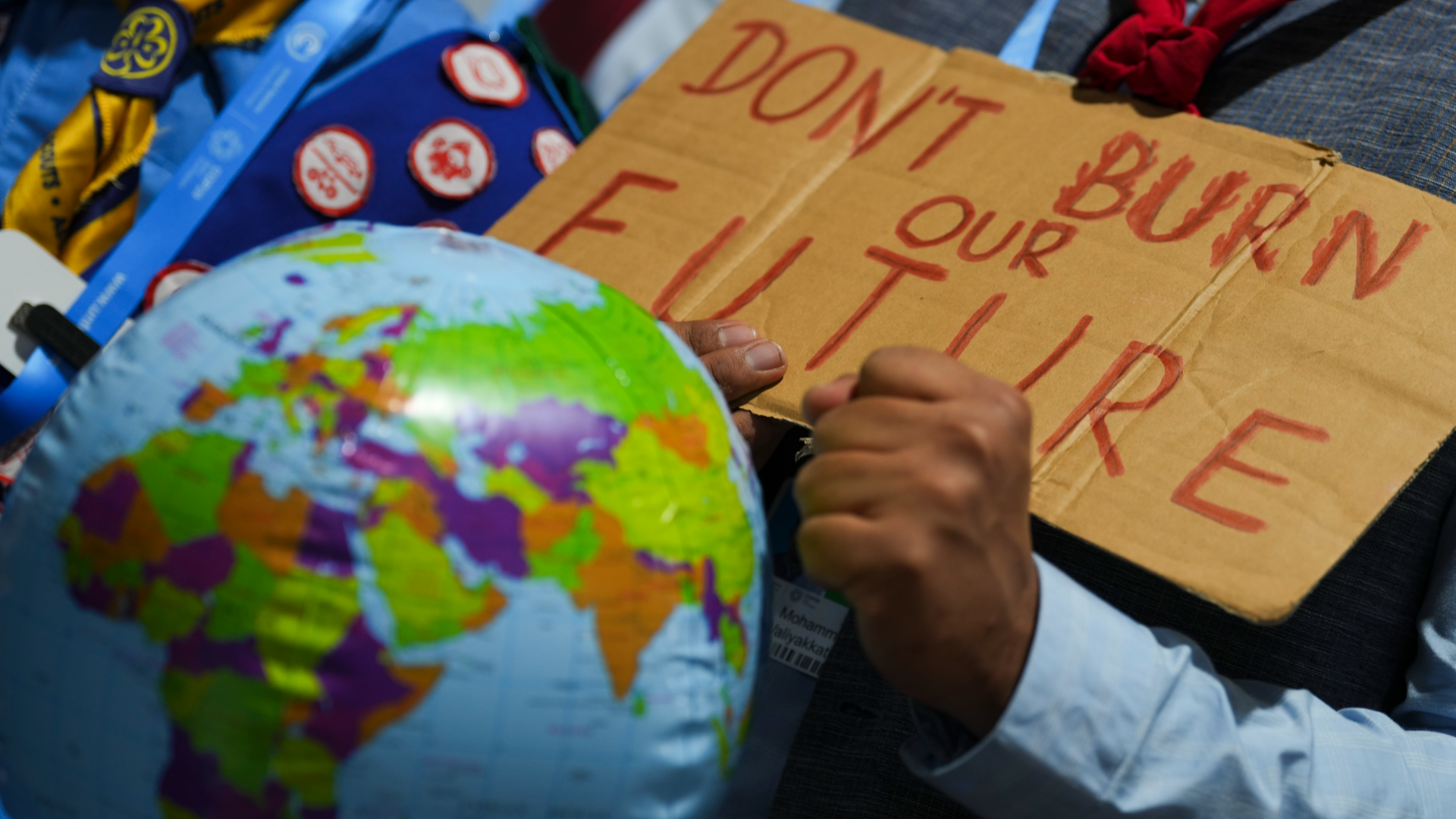Negotiators Pressed to Focus as COP29 Begins Second Week
Negotiators have been encouraged to focus on their efforts as COP29 begins its second week.

UN Climate Change Executive Secretary Simon Stiell emphasized the need for a no-nonsense approach, urging countries to "cut the theatrics and get down to real business." He addressed delegates in Baku, Azerbaijan, stating, "We will only get the job done if the parties are prepared to step forward in parallel, bringing us closer to common ground. I know we can get this done."
Climate and environment ministers from across the globe have gathered at the summit to accelerate the dialogue.
"Politicians have the power to reach a fair and ambitious deal," said COP29 president Mukhtar Babayev during a press briefing at the venue. He stressed the importance of immediate and constructive engagement: "They must deliver and engage immediately and constructively."
The provision of climate financing remains a contentious issue. The discussions in Baku are centered on increasing financial support for developing nations as they move away from fossil fuels, adapt to climate impacts, and address damages from severe weather. However, countries differ significantly on the financial requirements. A coalition of developing nations recently estimated the need at $1.3 trillion, while developed countries have not yet proposed any specific figures. Various experts have suggested that the necessary funding for climate finance may be around $1 trillion.
Wopke Hoekstra, the EU climate commissioner, acknowledged the difficulties in negotiating financial contributions: "We all know it is never easy in politics and in international politics to talk about money, but the cost of action today is, as a matter of fact, much lower than the cost of inaction." He affirmed the EU's commitment to contribute more than its fair share while also noting that "others have a responsibility to contribute based on their emissions and based on their economic growth too."
Teresa Anderson, the global lead on Climate Justice at ActionAid International, expressed doubts about the willingness of wealthy nations to cooperate. "The concern is that the pressure to add developing countries to the list of contributors is not, in fact, about raising more money for frontline countries," she remarked, warning that rich nations might be trying to evade responsibility. "That's not the way to address runaway climate breakdown, and is a distraction from the real issues at stake."
Rachel Cleetus from the Union of Concerned Scientists pointed out that $1 trillion in global climate funds "is going to look like a bargain five, 10 years from now." She highlighted the increasing costs of extreme weather events as justification for immediate financial action, referencing recent flooding in Spain and hurricanes Helene and Milton in the U.S.
German Climate and Economic Affairs Minister Robert Habeck stated that affluent countries should not hinder the ability of developing nations to generate energy, as long as it comes from renewable sources. "They have the same right to create same work, same education and health system," he added, cautioning against replicating the fossil fuel reliance of the past century.
Habeck, alongside British Energy Minister Ed Miliband, announced a commitment of approximately $1.3 billion on Monday to help developing nations transition away from fossil fuels. "The industrialized countries are committed to their climate financing, while at the same time we are bringing more private investors and donors on board and broadening the donor base," he stated.
As these discussions unfold, another major international summit is taking place in Brazil, where the G20 leaders are discussing key issues including climate change amidst global tensions and poverty.
Babayev stressed the vital role of G20 nations in achieving climate objectives: "We urge them to use the G20 meeting to send a positive signal of their commitment to addressing the climate crisis. We want them to provide clear mandates to deliver."
Harjeet Singh, global engagement director for the Fossil Fuel Non-Proliferation Treaty Initiative, urged G20 nations to recognize their historical emissions and the associated responsibilities. "They must commit to trillions in public finance," he insisted.
Additionally, the Paris-based Organization for Economic Cooperation and Development has been considering a proposal to reduce public spending on foreign fossil fuel projects. The OECD, consisting of 38 member countries, is discussing an agreement that could halt up to $40 billion in carbon-emitting projects.
At COP29, activists are protesting the positions of the U.S., South Korea, Japan, and Turkey, whom they view as obstacles to finalizing the OECD agreement. Lauri van der Burg, Global Public Finance lead at Oil Change International, stressed the importance of U.S. leadership: "It's of critical importance that President Biden comes out in support. We know it's really important that he lands a deal that Trump cannot undo. This can be really important for Biden's legacy. If he comes around, this will help mount pressure on other laggards including Korea, Turkey and Japan."
Frederick R Cook for TROIB News
Find more stories on the environment and climate change on TROIB/Planet Health












